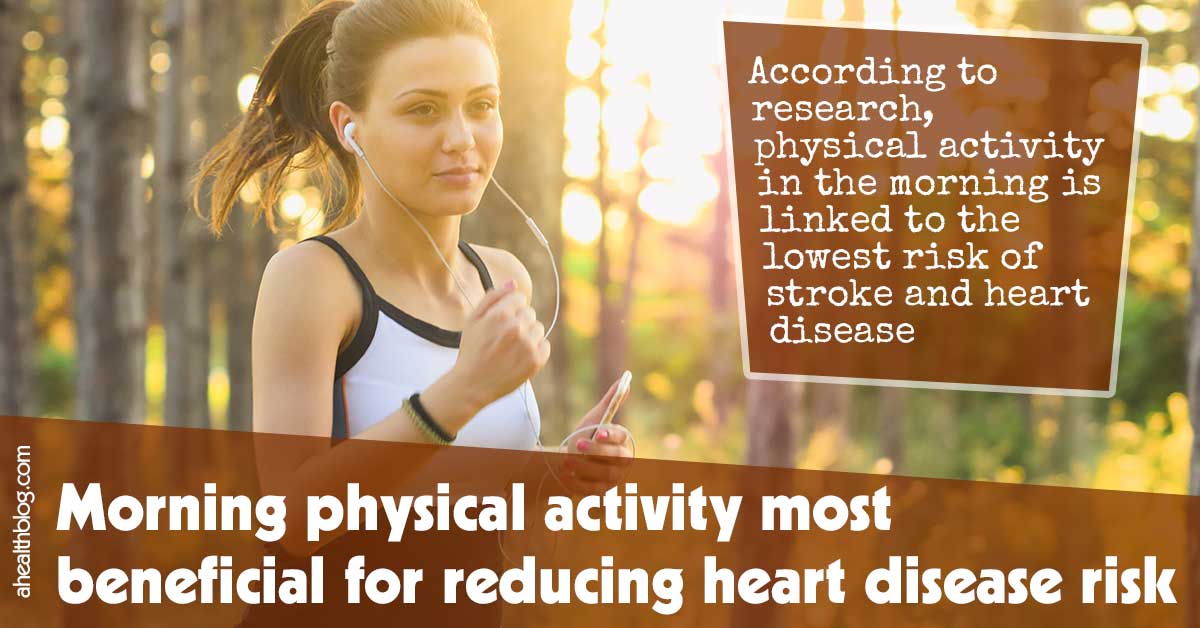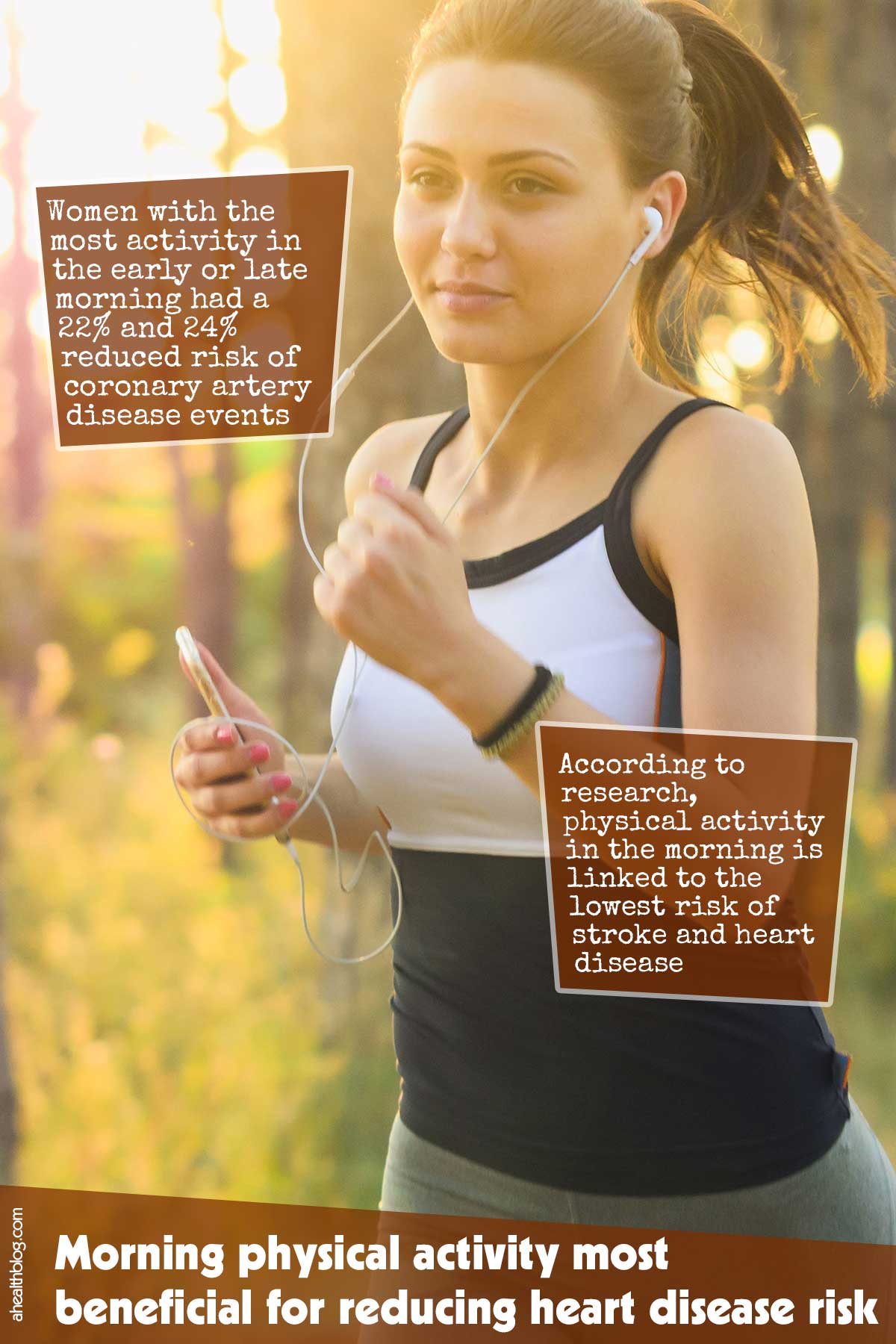According to research, physical activity in the morning is linked to the lowest risk of stroke and heart disease. It’s well-known that exercise is beneficial to heart health, and this study shows that morning activity appears to be most beneficial. The results were especially evident in women and applied to both night owls and early birds.1✅ JOURNAL REFERENCE
DOI: 10.1093/eurjpc/zwac239
The research made use of UK Biobank data and included 86,657 cardiovascular disease-free individuals between the ages of 42 and 78 with an average age of 62 and 58% were women. An activity tracker was worn on their wrist for 7 consecutive days.
They were monitored for cardiovascular disease events, which were identified as death or the first hospital admission associated with stroke or coronary artery disease.
Throughout the 6 to 8-year follow-up period, 796 individuals experienced a stroke, and 2,911 developed coronary artery disease. When peak activity times were compared over 24 hours, activity between 8 am and 11 am was associated with the lowest risk of stroke as well as heart disease.
In a 2nd analysis, the researchers separated individuals into 4 groups according to physical activity peak time: 1) midday; 2) early morning at approximately 8 am; 3) late morning at approximately 10 am; and 4) evening at approximately 7 pm.
The groups were chosen based on peak activity times of the study participants, instead of being established before the study started. Relationships between peak activity time and cardiovascular disease events were analyzed making use of midday as the control group.
After sex and age had been adjusted for, individuals with the most activity in the early or late morning had a reduced risk of 11% and 16% in coronary artery disease events, respectively, in comparison to the control group. The individuals with the most activity on the late morning also had a 17% reduced risk of stroke events in comparison to the control group.
The results were consistent irrespective of the total daily activity amount, and whether members referred to themselves as an evening or a morning person. Once the results were analyzed separately based on sex, the researchers discovered that the results were especially evident in women but not so much in men.
Women with the most activity in the early or late morning had 22% and 24% reduced risks of coronary artery disease events, respectively, in comparison to the control group. Women with the most activity in the late morning also had a 35% reduced risk of stroke events in comparison to the control group.




